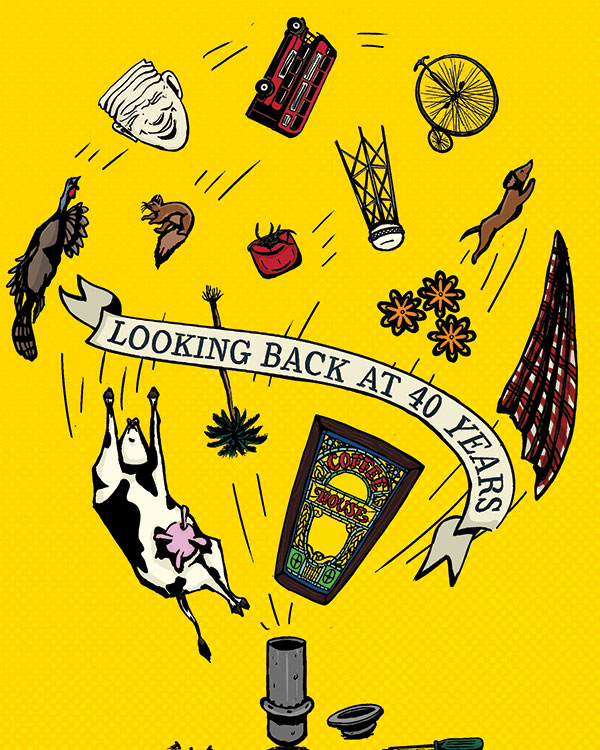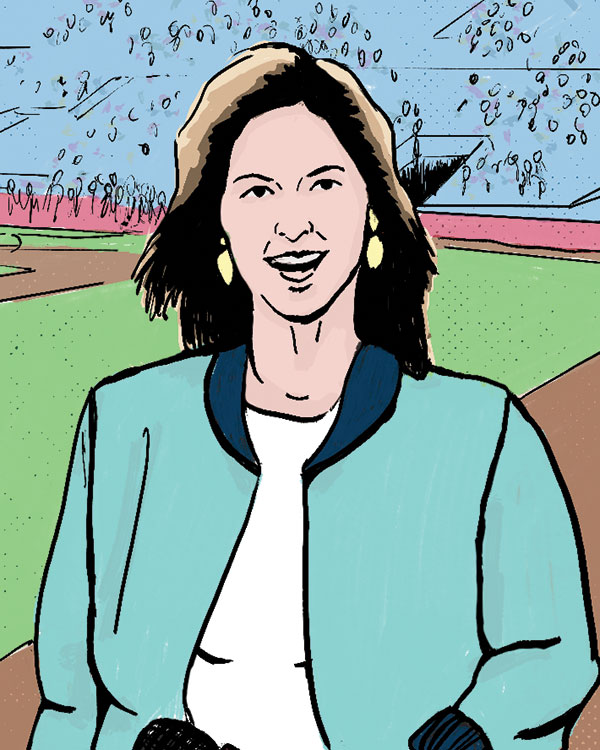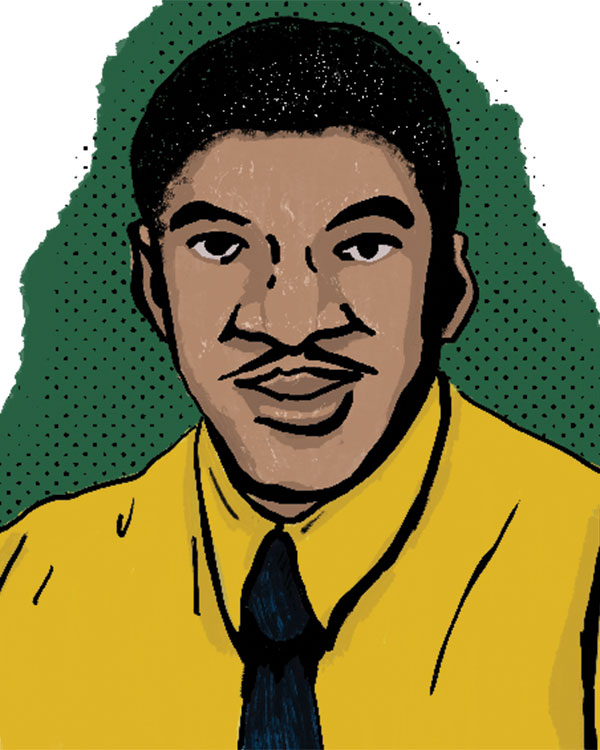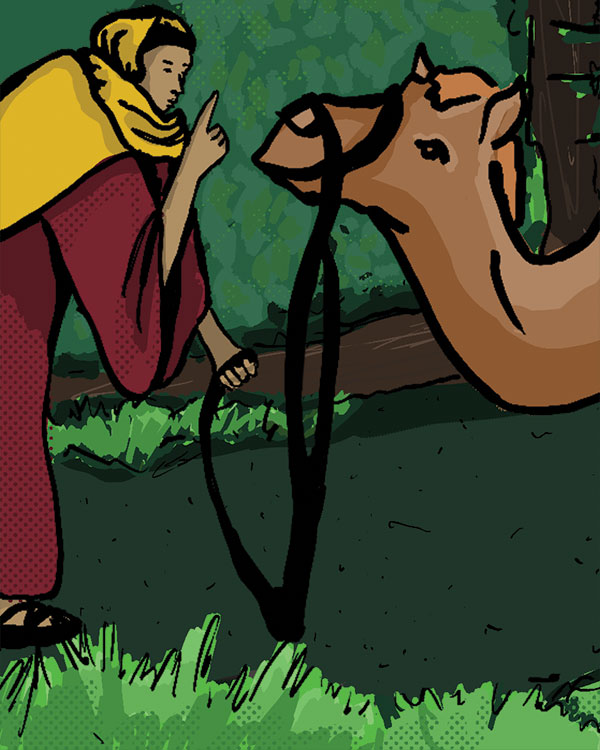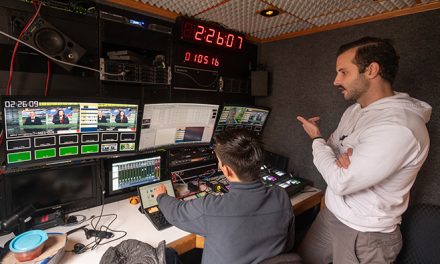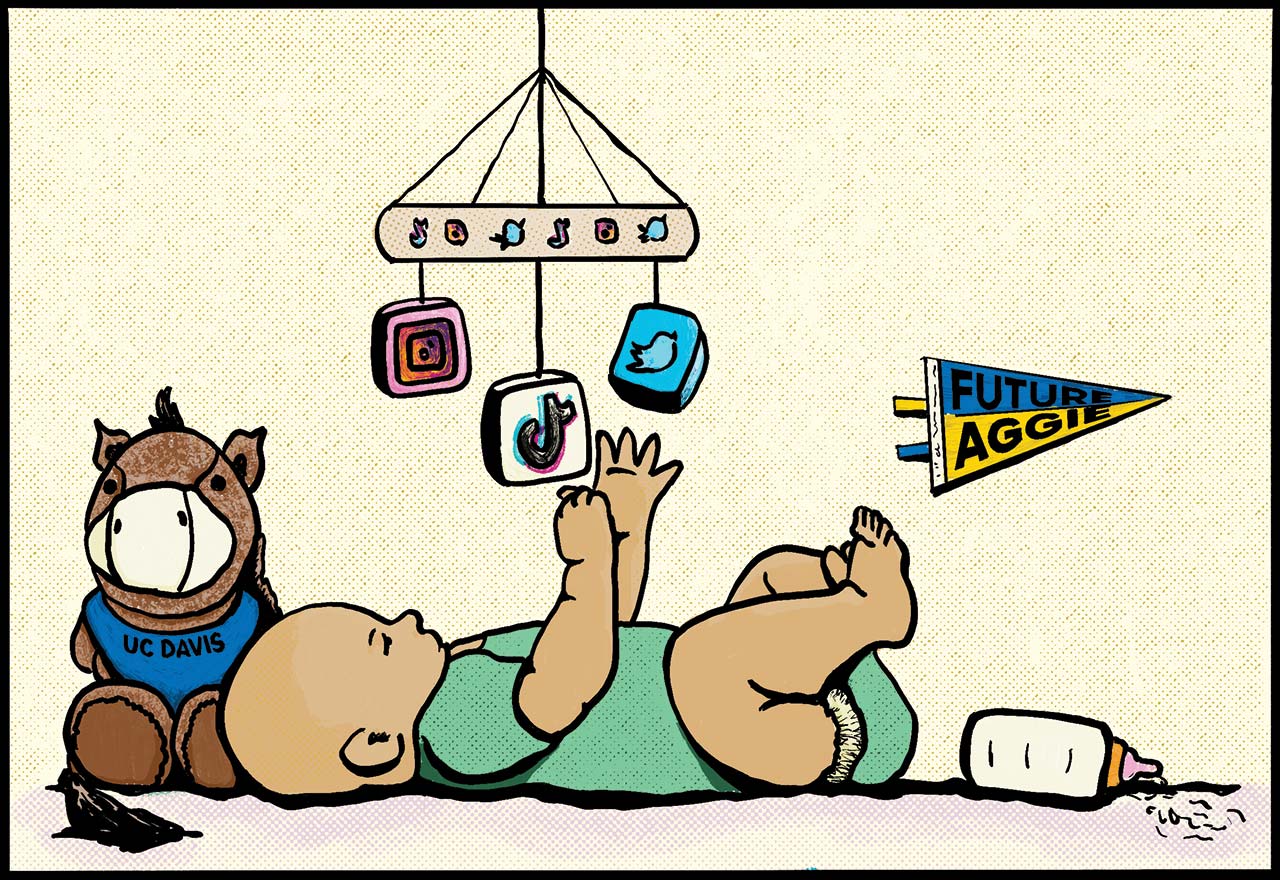
Ana Panaligan/UC Davis
What’s Important to Students
Technology advanced quickly.
The late ’90s and early 2000s are synonymous with rapid technological advancements, and UC Davis Magazine has documented a few of them. Today’s class grew up with technology for the majority of their lives. Many of them have never saved essays onto disks or stood in line to sign up for classes.
Sophomore Sophia Hauqe has used technology for as long as she can remember. She played video games on her family computer and got her first mobile phone at 11 years old. She said she appreciates the convenience of having a constant stream of information at her disposal, but also recognizes its drawbacks.
“It’s easier to learn things now than ever,” Hauqe said. “Still, having all of this technology at my disposal 24/7 makes me feel very distant.”
The student body has become more diverse.
Since 1968, UC Davis’ student body has changed significantly. Demographics began to undergo a notable shift in the ’80s and ’90s as more immigrants and first-generation Americans started college.
UC Davis Magazine documented this change in 1998, with statistics showing that UC Davis was 91 percent white 30 years prior. In fact, there wasn’t even a Hispanic/Latin American option on the 1968 freshman survey.
By 1994, the Asian American and Hispanic/Latin American populations had increased exponentially to 27.7 percent and 10.5 percent, respectively.
Now, UC Davis is on its way to becoming a Hispanic Serving Institution (HSI), or a higher learning institution with an undergraduate enrollment of at least 25 percent Hispanic students. This will allow UC Davis to apply for critical funding to support student success.
In the past 10 years, UC Davis has opened multiple centers to provide guidance and mentorship to historically underrepresented communities. These include the Center for African Diaspora Student Success and the LGBTQIA Resource Center.
Still, there’s a long way to go. Leaders of these organizations and centers promote discussion of inclusive ideas on meaningful levels, providing students with developed outlooks on inclusion post-graduation and beyond.
Services and support have increased.
As UC Davis has grown, so has the number of student support resources on campus. They exist in a multitude of areas. The Aggie Compass Basic Needs Center, for example, provides support and builds communities for those facing basic need insecurity, particularly food and housing.
Fourth-year Makhi Jones occasionally participates in a grocery drop-off program at Central Park. It gathers unused food from local markets and restaurants in downtown Davis, giving it out to the general public.
“The volunteers do the collecting on bikes with baskets attached to them,” Jones explained. “Once they collect the food, they offer it to anyone in need or want of it.”
Food options have evolved.
Food and drink have always offered ways for students to bond with each other or catch up on work. UC Davis has added a variety of food options for students as it has expanded, from the dining commons at the residence halls to the newer Latitude restaurant, a dining location with a global menu that opened in 2020.
Jaelen Terry, a sophomore, often goes to the CoHo to grab a quick bite and relax between classes. “I love it when the CoHo stocks up on all of the croissants,” said Terry, referring to the many varieties available. “The blueberry ones are the best for sure.”

